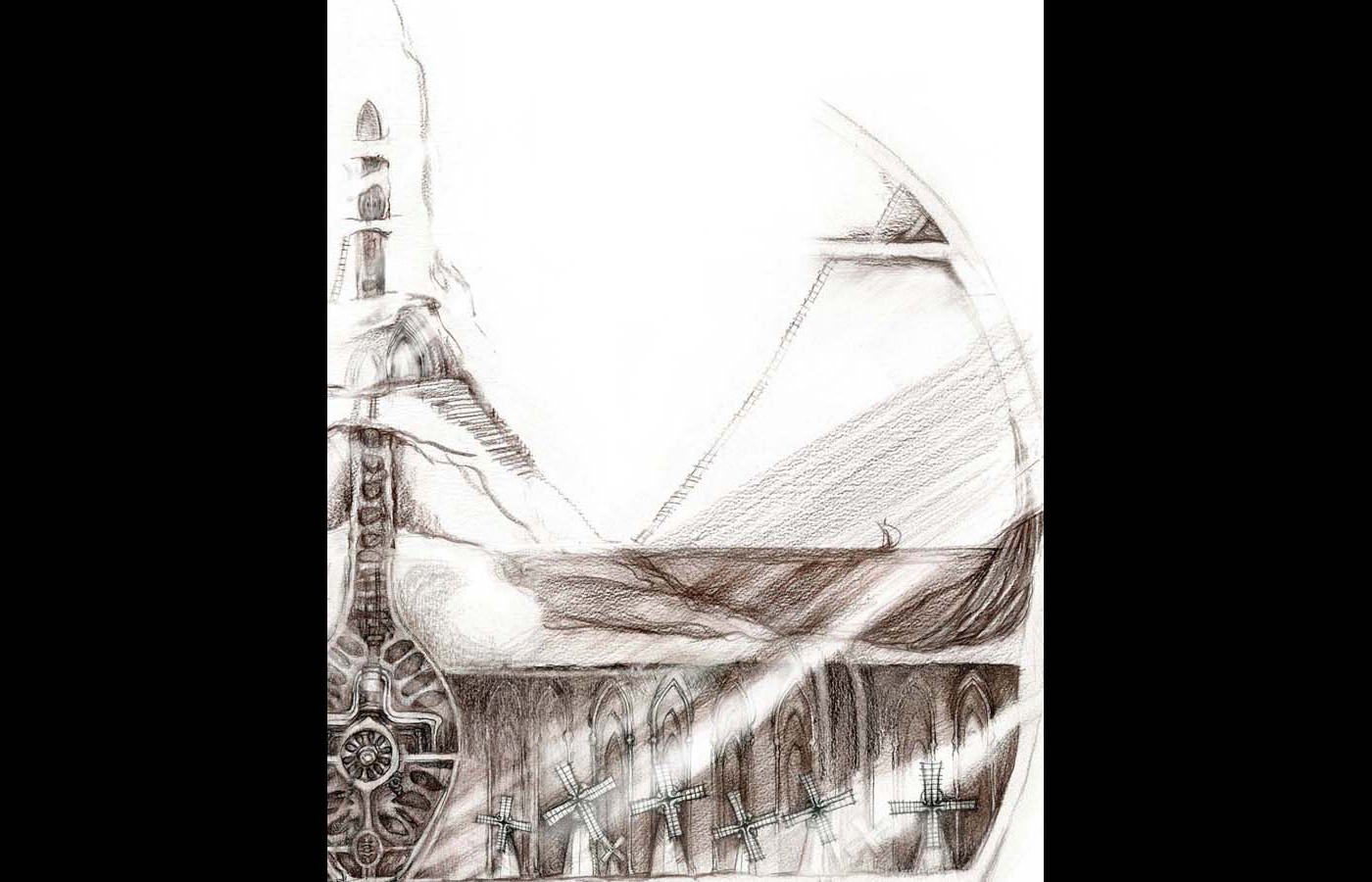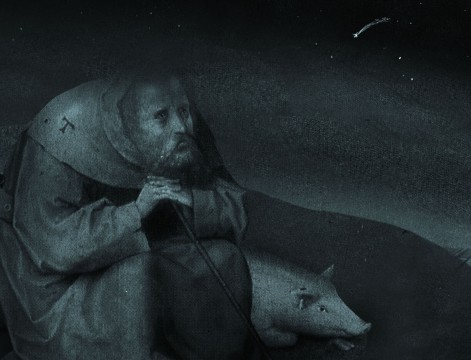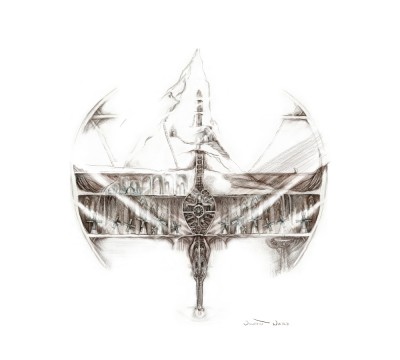The Unrequited Vision
Vincent Ward’s unrequited vision for Alien III got the top spot in the London Times Online list of ‘greatest sci-fi movies never made’.
‘It wasn’t a retread kind of sequel it was a completely new idea rich with religious imagery, iconography and metaphor.”
The Greatest Sci-Fi Movies Never Made David Hughes, 2005
Producers Hill and Giler had already midwived a whole series of alternative futures for Ripley and her nemesis when Hill saw Vincent Ward’s The Navigator: a medieval odyssey and in his own words was ‘blown away’; he had found his director for Alien III.
They approached Ward and while he was not interested in making a repeat, the Alien series was promising in that the first two movies were both very different from each other.
Ward read the many existing scripts and thought they were much along the same lines as the previous two films, coincidently the producers felt the same way.
Ward pitched a new idea that set Alien III in a medieval partially wooden space satellite with monks. Giler and Hill loved it, Giler remembers ‘it was a little far out, but that’s what we wanted, to push things a little bit’. Sigourney Weaver found Ward’s concept ‘very original and very arresting.’ Ward was hired to write and direct the film and Alien III was finally greenlit.
Ward began work on the script, sets began being built, when eight months into production the new studio owner wanted to significantly advance the release date before the script was even locked down. The whole project was dropped into a pressure cooker and the studio became much more conservative. As production executive Jon Landau as since put it ‘we set out to make a release date not a movie’. The producers began to get cold feet – Ward was getting the message that his idea was after all perhaps too daring and too different. With studio politics slowly eroding his concept he saw he wouldn’t be able to realise his story, not wanting to simply do ‘a remake’ he and the producers decided to part ways. Ward was given a story credit in the eventual film, but in his opinion the more interesting material did not survive the studio system.
Over the years since Vincent Ward first imagined this project he has found that it keeps visiting him again and again. It has been commented on how very clear his sense of it is after all this time and he hopes that in sharing this world and story he can find a way of shedding himself of it.

Former London Times journalist David Hughes included Ward’s version of Alien III amongst The Greatest Sci-Fi Movies Never Made, in his book of this title. Since Ward’s vision for the film was never borne out into the arena of public scrutiny, this is obviously reserved for those who have taken a particular interest in the Alien project. However, Ward’s proposed version of Alien III has gained a certain following with a 2009 article in Empire magazine and an extensive section dedicated to Ward’s vision in the Alien Quadrilogy box set.
The information in this section borrows text from the recent Empire magazine (UK) article by Dan Jolin. The gallery illustrates Ward’s ideas for this world and his story and were drawn under his direction, by artist Mike Worrall and architectural designer Lebbeus Woods, plus additional drawings by Ward himself and Steve Ellis, and some adapted historical material. These sketches will hopefully give you a taste of what Ward’s version of Alien III might have been like.
Ward’s wooden planet concept is undeniably attractive – it would have been visually arresting and could have made for some astonishing action sequences.
Re-imagining the alien through god-fearing (or devil-fearing) medieval eyes would have scared the bejesus out of people.
Empire Magazine, 2008
Join our mailing list for news and updates on’ Alien the Wooden Planet’.
COPYRIGHT: Previously unpublished concept drawings and newer material prepared especially for this website brought to you permission of Twentieth Century Fox. All images © Twentieth Century Fox Film Corporation 1990, Empire Magazine 2008 and Wayward Films Ltd 2009




